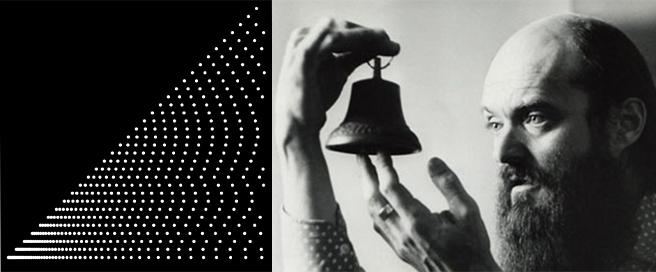Music for Meditation- Arvo Pärt

April 10th, 2020
By Mark George, President and CEO
A weekly recommendation of music for meditation. Find a comfortable chair or lie down, turn on a smart speaker or put in earbuds, and just listen.
My recommendation this week is a work entitled Fratres (Brothers) by Estonian composer Arvo Pärt. This piece is a little longer (ca. 10’ 30”) than my previous recommendations but well worth the extra time.
Fratres was one of Pärt’s earliest compositions in a style he calls tintinnabuli (“bell” in Latin). In brief, the music is presented in three voices moving together in a slow-paced rhythm. The middle voice is restricted to the three notes of an A minor triad, primitive, simple…like bells (tintinnabula).The others are more melodic and move mostly stepwise. Added to this are a low-register drone of an interval of a perfect fifth (A and E) and a solo instrument that provides an arpeggiated elaboration (this is how the piece begins).
This description sounds complicated, which is misleading. The effect is actually very simple, an inexorable repetition of three voices and drone with soloist, interspersed with brief percussion-like respites. The music is beautiful, strange, and compellingly spiritual. The composer has said about his music, “Time and timelessness are connected. This instant and eternity are struggling within us. And this is the cause of all of our contradictions, our obstinacy, our narrow-mindedness, our faith and our grief.”
When listening it is best to concentrate on the sameness of the repetitions but also notice the slow-motion evolution of the music. By the way, Pärt designed the music so that many different combinations of instruments could play it. I have selected a live performance with violin (the solo instrument) and piano (the three-part chords and drone).
Fratres (1977) Arvo Pärt (b. 1935)
Anne Akiko Meyers, violin
Akira Eguch, piano
Born in Estonia in 1935, Arvo Pärt has had a significant influence on the way we listen to and understand music. The development of his tintinnabuli style was informed by a study of medieval sacred music. His music has reached a vast audience of listeners, transcending the boundaries of classical music.
Anne Akiko Meyers is an American violinist and recording artist. She has performed as a guest soloist and chamber musician at major venues around the world.
Akira Eguchii is a Japanese pianist and composer.
